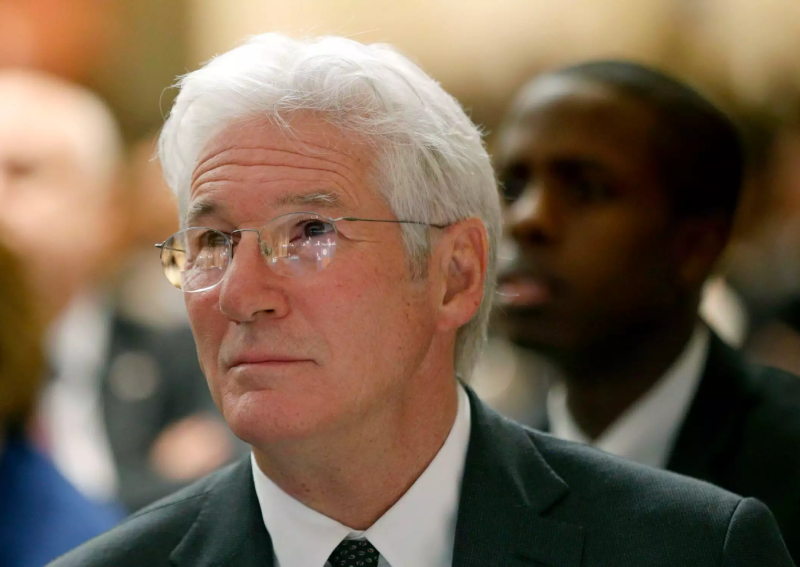Did China ruin Richard Gere’s career after 1997 film Red Corner?

It may be hard to imagine today, but in the mid-1990s Hollywood made a series of high-profile films criticising China, rather than pandering to the country to maximise worldwide box-office profits.
Released with varying degrees of fanfare in 1997, Martin Scorsese’s Kundun, Jean-Jacques Annaud’s Seven Years in Tibet and Jon Avnet’s Red Corner are scarcely talked about today. Whether that’s a question of quality or diplomacy is another matter.
Red Corner is a glossy but by-the-numbers tale of an American lawyer trapped in a corrupt Chinese legal system. It stars Richard Gere, then one of the biggest stars in the world.
Gere, for whom this was something of a passion project, had condemned China’s occupation of Tibet and “horrendous, horrendous human rights situation” at the 1993 Oscars. After Red Corner, he would feel the full force of the country’s ire.
While visiting Beijing to broker a satellite communications deal with the government, entertainment lawyer Jack Moore (Gere) has a one-night stand with a general’s daughter Hong Ling (Jessey Meng), then wakes to find she’s been murdered.
Soon he is in court facing the death penalty, and his only hope of survival is state-appointed lawyer Shen Yuelin (Bai Ling), who urges him to plead guilty or risk being sentenced to death.
“Unlike in your country, Mr Moore, sentences are carried out within a week,” she tells him. “You will be shot, and the cost of the bullet will be billed to your family.”
To hammer the point home, we see purportedly genuine footage of Chinese prisoners being executed. It’s terrifying that such footage exists — and a very bold move to include it in an otherwise unremarkable thriller — yet the significance is quickly lost as we watch Moore enduring all manner of fictional tortures on his long route to freedom.
But no matter how many atrocities it shows, Red Corner never fully convinces.
Partly this is because almost none of it was actually filmed in China. Although Avnet and Bai travelled to Beijing to grab some guerilla-style footage, the rest was shot on a seven-acre mock-up in Los Angeles filled with imported Chinese bikes and cars.
This set is perhaps best shown off in the ridiculous scene where Moore escapes his guards and flees across the rooftops — in handcuffs — to the American embassy, only to turn himself back in to the Chinese authorities to save Shen, who has put her life on the line for him.
Viewed today, what’s surprising is not that the film is so anti-China, but that it doesn’t seem very enamoured with America either.
Part of Moore’s deal involves a Baywatch-style TV show called Beachside. When his clients call it soft pornography, he agrees, quoting Mao — in Mandarin, no less — to suggest they “use the West for Chinese purposes”. Such content, he argues, is “imperfect, often violent and prurient. Wouldn’t that tend to discourage the pursuit of Western values?”
To the Chinese, the worry is that opening doors to the West will lead to “spiritual pollution”. To Moore, freedom is the freedom to watch Beachside, and China is just another market to be penetrated.
In a move that might have come from the film itself, China’s Ministry of Radio, Film and Television banned any cooperation with the studios behind Red Corner, Kundun and Seven Years in Tibet, saying that the films “viciously attack China and hurt Chinese people’s feelings”.
It didn’t do much for Gere’s career either.
“Everyone was happy with the film,” he told the Hollywood Reporter. “Then, out of nowhere, I get calls saying, ‘We don’t want you doing press.’ MGM wanted to make an overall deal with the Chinese. China told them, ‘If you release this film, we’re not buying it.’ And so, they dumped it.”
Since the mid-2000s, Gere has appeared in very few studio films, and he has a good idea why.
“There are definitely movies that I can’t be in because the Chinese will say, ‘Not with him,’” he said.
Whether he’s right or not, the message is clear: mess with China at your peril.












Leave a Reply